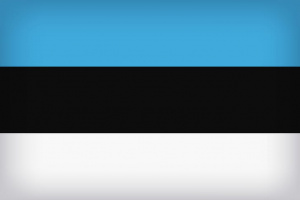Language/Standard-estonian/Grammar/Conditional-Mood
Hi Standard Estonian learners! 😊
In today's lesson, we will be discussing the conditional mood in Standard Estonian. The conditional mood is used to express a hypothetical situation or an unreal condition. It is also used to express politeness and courtesy. We will look at how to form the conditional mood, as well as when and how to use it.
After mastering this lesson, these related pages might interest you: Standard Estonian Grammar → Introduction to Estonian → Alphabet ..., Introduction to Estonian grammar ..., Adjectives & Articles.
Forming the Conditional Mood[edit | edit source]
The conditional mood is formed by adding the suffix -ks (or -ksi) to the verb stem. For example, the verb "tulema / tulla" (to come) becomes "tuleks" (or tuleksi+ person ending) in the conditional mood.
Examples:
- The verb "tegema / teha" (to do) becomes "teeks" in the conditional mood.
- Ma teen > Ma teeks / teeksin
- Sa teed > teeks / teeksid
- Ta teeb > teeks
- Me teeme > teeks / teeksime
- Te teete > teeks / teeksite
- Nad teevad > teeks / teeksid
- The verb "tulema / tulla" (to come) becomes "tuleks" in the conditional mood.
- Ma tulen > tuleks / tuleksin
- Sa tuled > tuleks / tuleksid
- Ta tuleb > tuleks
- Me tuleme > tuleks / tuleksime
- Te tulete > tuleks / tuleksite
- Nad tulevad > tuleks / tuleksid
When and How to Use the Conditional Mood[edit | edit source]
The conditional mood is used to express a hypothetical situation or an unreal condition. It is also used to express politeness and courtesy.
For example:
- If I had more time, I would go to the beach. (Hypothetical situation)
- Kui mul oleks rohkem aega, ma läheks/in randa.
- Could you please help me? (Politeness and courtesy)
- Kas sa palun aitaks/id mind?
It is also used to express wishes and desires. For example:
- I wish I could fly. (Wish)
- Ma tahaks/in osata lennata.
In addition, the conditional mood can be used to express a polite request. For example:
- Would you mind helping me with this? (Polite request)
- Kas sa aitaks/id mind sellega?
If you have any questions, please ask them in the comments section below.
Feel free to edit this wiki page if you think it can be improved. 😎
Other Lessons[edit | edit source]


